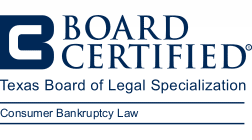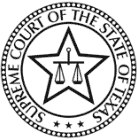What debts cannot be erased in a Texas bankruptcy?
Filing for bankruptcy in Texas can offer a fresh financial start for those struggling with overwhelming debt.
While bankruptcy can discharge many types of debt, understanding that not all debts qualify for discharge is essential.
Debts bankruptcy does not discharge
Bankruptcy proceedings, regardless of whether you file for Chapter 7 or Chapter 13 bankruptcy, do not discharge certain types of debts. For example, bankruptcy does not discharge student loans in most cases. However, if you can prove that repaying your student loans would cause you undue hardship, you may be eligible for a discharge. To do this, you must demonstrate that you have made a good-faith effort to repay the loans and that your financial situation is unlikely to improve in the future.
Furthermore, bankruptcy generally does not discharge some tax debts, such as recent income tax debts, payroll taxes and tax penalties. In certain circumstances, bankruptcy may discharge older income tax debts if you meet some specific requirements, such as the debt being at least three years old and the tax return filed at least two years before filing for bankruptcy.
Evaluating the impact of non-dischargeable debts
Before deciding to file for bankruptcy, consider the impact of non-dischargeable debts on your overall financial situation. If non-dischargeable debts make up the majority of your debt, bankruptcy may not provide the financial relief you need.
Conversely, if you carry a significant amount of dischargeable debt, such as credit card debt or medical bills, bankruptcy could help you eliminate those debts and focus on repaying non-dischargeable obligations.
While bankruptcy can help eliminate many types of debt, understanding that bankruptcy cannot discharge some debts is essential. Proactively addressing your financial challenges can help you regain control of your finances and work towards a more stable financial future.











